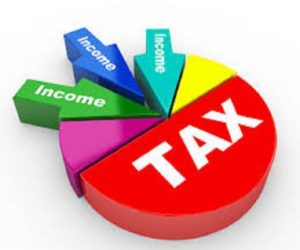
Once a person takes birth, there are only two things certain in life: death and taxes
– Benjamin Franklin.
In a dynamic world, where things keep changing every second, we can add few more things to what Benjamin Franklin had said. For example, paying toll is certain if you own a vehicle, retirement is certain if you are an employee etc.

Given a chance, nobody would like to pay taxes. However, in order to meet the growing expenses of the Central government, collecting revenue is part and parcel of the Union Budget.
This article is an attempt to brief the readers the nuances of Income tax and how to understand it.
Income tax is the tax levied on the income earned during a particular financial year. The term ‘income’ has wider connotation. It connotes a periodical monetary return ‘coming in’ with some sort of regularity, or expected regularity from definite sources.
Let us discuss some of the basic principles of income:
1. Regular and definite source – for example – salary.
2. Different forms of income – it could be in cash or in kind. If you win a car in a lottery scheme, the cost of the vehicle is the income assessable in your hand.
3. Receipts vs Accrual – income arises either on receipt basis or on accrual basis. Salary is taxed on receipt or due basis. Interest credited in the books of accounts of an assessee is charged on accrual basis.
4. Illegal income – income tax does not distinguish between legal and illegal income. The income earned is taxed in the hands of the recipient.
5. Temporary and permanent income – for the purpose of income tax, there is no distinction between temporary and permanent income. Even temporary income – like winnings from lottery – is taxable.
6. Income includes loss – this is a distinctive feature of income tax. Any taxes levied by the State government (GST), Muncipality (House Tax) etc. do not take into consideration whether the person who has paid the taxes has derived any profit from the source from which the taxes are paid. For example, The Municipality is not concerned whether the person occupying the house has any income. If you are staying in your own house within the Municipality limits, pay house tax. Similarly, if you have a turnover in business of , say 25 lakhs, pay GST irrespective of whether you have earned any profit out of the sales made.
On the contrary, if you are owner of a house property which is let out, the interest paid on loans borrowed can be set off against the income earned from it. And if the resultant figure is a negative, you can set off this loss against your salary/business income. If the balance after set off is still negative, carry forward it to the next financial year and set off.
Generally income tax is collected from the person who earns it. However, in certain circumstances the tax can be collected from persons other than the one earning it. Details later. There is a concept of deemed income as far as the income tax is concerned. For example, interest received by the spouse is taxable in the hands of the assessee if he is the source for the deposit.
Income tax is charged from the ‘assessee’ and an assessee is
i) a person who has filed his return of income for a particular assessment year,
ii) a person against whom any provisions of Income tax Act is invoked by issue of any notice,
iii) a person who is deemed to be an assessee. For example, a person is a legal representative,
iv) a person who is deemed to be an assessee in default under any provisions of the Act. For example, a person who is supposed to deduct tax for the payments made, does not deduct tax (popularly know as TDS), he is an assessee in default.
To be continued….

✍: Subhas Korangrapady.





